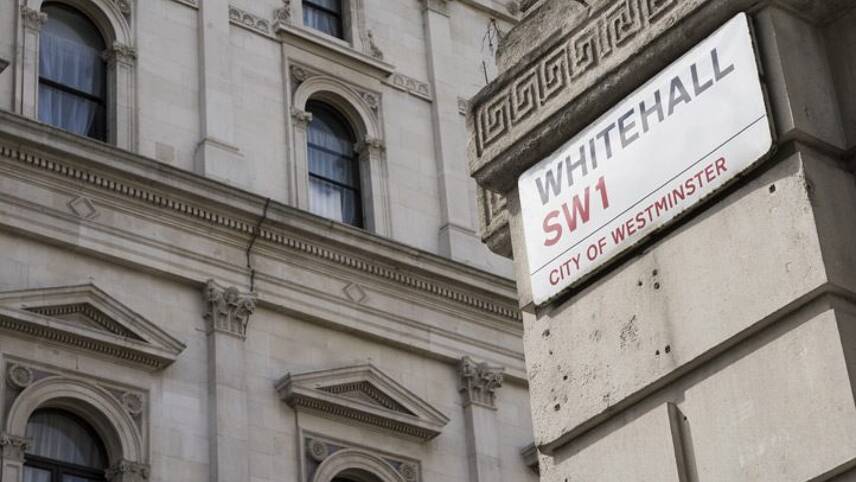WOBO members and fellow professionals must keep abreast of energy developments and the use of resources. WOBO thanks “edie” for the support provided.

Survey: Going plastic-free an opportunity, not a burden, for SMEs
Two-thirds of micro-sized, small and medium businesses (MSMEs) would welcome the introduction of stronger policies to tackle plastic pollution, despite a potential increase in costs in the short-term.
This is according to a global survey of more than 130 small businesses across the world, carried out by WWF and the Ellen MacArthur Foundation.
The businesses were asked whether they are likely to support the introduction of a new global treaty to tackle plastic pollution. Convened by the UN, the treaty will cover all stages of the plastic life-cycle, from production to waste management.
It is hoped that the treaty will be finalised later this year, though recent meetings to discuss the mechanics of its implementation have proven less productive than hoped.

We have a tree planting problem – are vertical farms the answer?
A Healthier Earth’s chief R&D officer Alastair Collier outlines how his team are innovating to overcome the biggest challenges to the UK’s tree-planting efforts.
Globally, we have a tree-planting problem. As the climate and nature crises escalate, we need to plant billions of trees to remove carbon dioxide from the atmosphere and revive essential ecosystems.
In the UK alone, scientists are warning of the catastrophic collapse of forests within 50 years if we don’t take urgent action.

Sustainability strategies – six key steps for hitting a moving target
Sustainability is a rapidly evolving landscape and sometimes it can feel like trying to hit a moving target. As the understanding of our impact evolves, sustainability strategies and calculations increase in complexity to match, writes Sir Robert McAlpine’s sustainability director Simon Richards.

UK general election brings fresh hope for a ‘mission-based approach’ to net-zero policy
The next UK Government must reinstate clear and comprehensive policymaking for net-zero, or it will risk losing billions in private investment overseas, major new report spearheaded by Chris Skidmore is warning.
The Mission Zero Coalition’s new report marks five years since the UK became the first national government to enshrine a binding net-zero target in law.
“While in the past five years since the UK became a climate leader in being the first major economy to sign net-zero into law, there have been a number of promising developments and commitments, these have not readily translated into clear climate delivery,” the report foreword co-authored by Skidmore and RenewableUK’s chief executive Dan McGrail states.

BSI to launch global standard for credible net-zero targets
The British Standards Institution (BSI) has kick-started an 18-month process to develop a new, independently verifiable standard to assure the credibility of net-zero targets from businesses and other organisations.
BSI intends to launch the standard at the UN’s annual 2025 climate conference, COP30, which will be hosted in Brazil.
While BSI is based in the UK, it has more than 77,500 clients globally and has increased its international scope in recent years. The development of the new net-zero standard is being jointly convened by ICONTEC, Colombia’s national standards body.

As June comes to a close, edie and our innovation partner Springwise have rounded up six of the best breakthrough technologies for the green economy, including microfactories to recycle e-waste and build low-impact modular homes. Read on to find out more.Easy storage and transportation are properties which fossil fuel businesses claim will be lost in the transition to renewable technologies. However, in our first innovation this month, a Swiss University spinoff has found a way to create solar fuels that share these abilities.

Smart and energy-efficient buildings: Five top tips for installing energy monitoring systems
Energy costs form a significant portion of any building’s operational emissions and costs. As the price crisis continues and businesses work towards net-zero targets, how can smart technologies be used to cut costs and carbon?
This was the topic of discussion for a recent online masterclass event from edie, hosted in partnership with E.ON.
The hour-long session cut through the complexities, highlighting the opportunities and providing need-to-know information for organisations seeking to utilise building energy management systems (BEMS) as part of their strategies for decarbonising, improving energy efficiency and installing next-generation digital and flexible energy technologies.

Climate hazards impact more than four-fifths of cities worldwide, study finds
New research has revealed that 83% of cities worldwide are dealing with significant climate hazards, up from 80% in 2022, with flooding and extreme heat being the most widespread challenges facing urban areas globally.As global temperature records continue to be broken for the 12th consecutive month, new data from CDP – the non-profit organisation managing voluntary environmental disclosures from cities and businesses – indicates that flooding and extreme heat are the most pervasive impacts of climate change affecting cities worldwide.

The Labour Party has won the General Election, meaning that the UK Government will now set up Great British Energy as a priority and strive for a decarbonised electricity grid by 2030.Conservative Party leader Rishi Sunak conceded defeat in the small hours of Friday (5 July) after the general public went to the polls on Thursday (4 July). At the time of 5:06am Labour reached the required 326 seats to be declared the winning party of the General Election, with BBC predicting them to win 410 seats, compared to just 144 Conservative seats.
